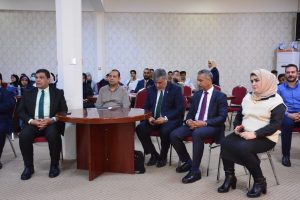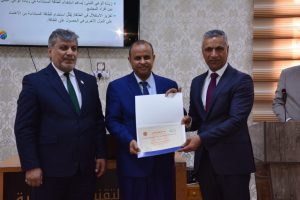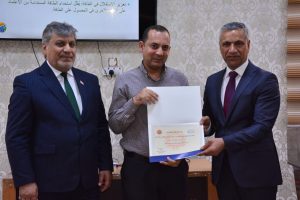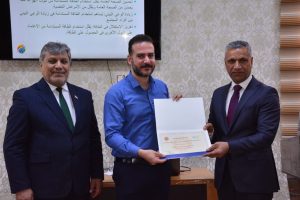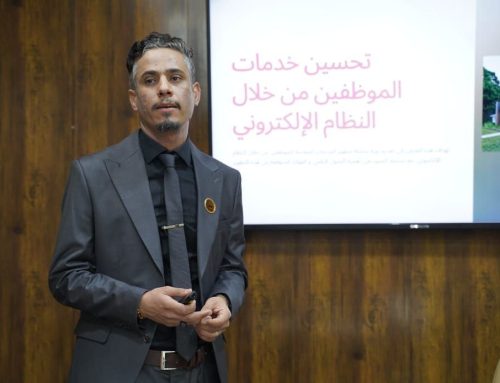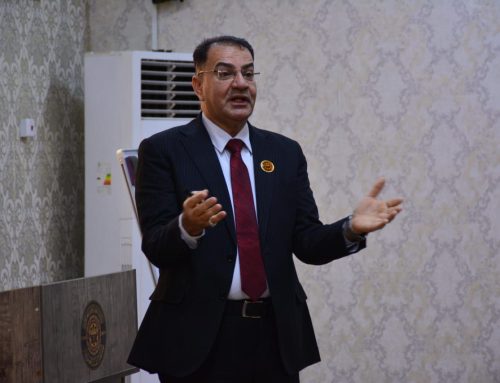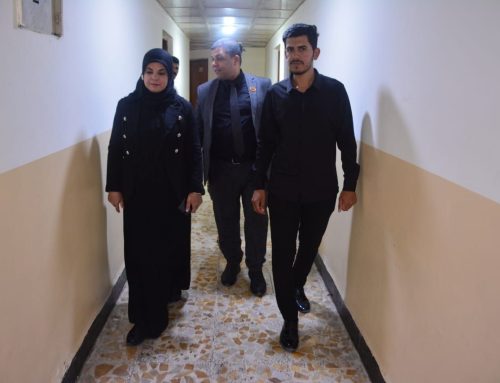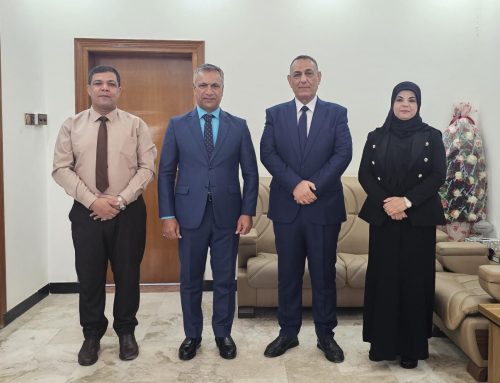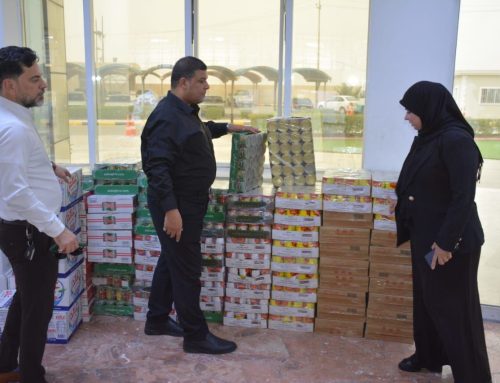Basra Engineering Technical College, conducted a scientific symposium on industrial applications of sustainable energy, under the patronage and presence of the President of the Southern Technical University, Professor Dr. Adnan Abdullah Atiq, the supervision of the Dean of the College, Dr. Laila Balasim Hashem, and in the presence of the Prime Minister’s Advisor for the Leadership Initiative, Dr. Hussein Flamers, the teaching staff, and the students.
The symposium was opened with a lecture entitled “The Transition to Sustainable Energy and its Impact on Industry” within the National Initiative to Support Energy and Reduce Emissions, presented by a chief engineer at the General Company for Electric Power Production, Southern Region.
It concluded that: “Renewable energy types can play a greater role in supplying basic energy when the process of providing energy services is characterized by more efficiency. With increases in the sharing of renewable energy, a smaller amount of primary energy becomes required in order to provide the same level of energy services.”
The two sides are working together to minimize environmental and economic costs across the network; The types of renewable energy that do not require a fuel input, namely wind, solar and hydropower, lead to a fundamental energy improvement since there is no need for heat conversion.”
He added, “Distributed renewable energy, combined with energy efficiency improvements, leads to a reduction in demand for electricity at peak times. Clean energy can also be utilized through energy management and energy security methods for the purpose of maintaining traditional, renewable, and clean energy consumption levels.”
The lecturer in the Department of Fuel and Energy Technologies Engineering presented A.P. Rafi Muhammad Qasim, a lecture entitled “Energy Generation Using Wave Harvesting”
He concluded, “ The wave harvesting method for generating electrical energy is considered one of the most important clean energy methods compared to fossil fuels because of its benefits in reducing air pollution, noting that the lecture focused on calculations of the amount of energy generated from wave harvesting, wave harvesting methods, and wave harvesting equipment. The cost of wave harvesting equipment was considered. And ways to maintain it.
While the lecturer, Hisham Jaber Jassim, presented a lecture entitled Water Energy, which concluded that “Water energy is the energy derived from the continuous movement of water that cannot be exhausted. It is one of the most important sources of renewable energy, and in other words it is taking advantage of the movement of water for useful purposes. The use of Before its spread, water power provided commercial electrical power for irrigation, grain milling, and the textile industry, as well as for operating sawmills.
He added, “The direct transmission of mechanical energy required the presence of industries that used water energy near a waterfall. Especially during the last half of the nineteenth century, and today the most important use of water energy is the generation of electrical energy, which provides low-cost energy even if it is used in remote places.” From the watercourse.”
The University President presented certificates of thanks and appreciation to the lecturers at the symposium, stressing the university’s interest in scientific activities related to clean energy.
